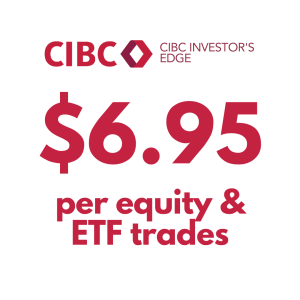
Nobody likes a big bill come tax season. Even if you invest in all the right financial products, some of those products might be less tax efficient than others. Our roster of financial advisors discuss many topics with clients to help them select investment strategies and products to minimize tax burden. So, how do you choose? Let’s start with two popular financial products: ETFs and mutual funds. Are ETFs more tax efficient than mutual funds? Or is it the other way around? We’ll walk through each of their unique attributes and help you figure out which one is more tax efficient.

Table of contents
What does tax efficient mean?
First stop? Let’s clear the air on what we mean when we say “tax efficient.”
Tax efficient means an individual or business can pay the least possible amount of taxes required by law. For investment products, tax efficiency is based on the product’s return and tax obligation on that return. For example, Registered Retirement Savings Plans (RRSPs) are relatively tax efficient because they allow you to deduct from your personal income and thus lower your income tax. Plus, it allows you to relish compounding interest on your earnings. Then, down the road when you’re retired, you can control your tax bracket through RRSP withdrawals.
CIBC Investor’s Line Offer
Up to $6.95 per online stock or ETF trade. Plus, there’s no minimum account balance.
Bottom line? Taxes eat into your investment returns—so it’s your priority to find products and strategies to minimize those taxes. Overall, ETFs and mutual funds are both considered tax efficient. But how do they differ in terms of return and tax burden?
Related Reading: How to Invest in Mutual Funds in Canada
Are ETFs and mutual funds taxed the same way?
For the most part, yes. While ETFs are purchased and traded on the market and mutual funds purchased from an investment agent, the two investment products share similarities in how they’re taxed.
For mutual funds, you’ll have to pay taxes on interest and dividends while you own the shares. Additionally, you’ll need to pay capital gains tax once you sell your mutual funds. The exact amount of taxes you owe for mutual fund capital gains depends on your sale price, expenses amount, and amount resulting in cost-base adjustment (ACB). In other words, your ACB displays an average cost for your mutual funds over time.
Similarly, individuals owning ETFs must pay tax on dividends, capital gains, and interest earned. But there’s something keeping your ETF tax obligation a bit lower than those on traditional mutual funds.
What is the tax advantage of an ETF over mutual funds?
ETFs are sold between investors on the market, whereas mutual funds are bought and sold directly with the fund, including underlying investments at the time of sale. The result? More taxes on your mutual fund, since ETFs don’t display the same taxable activity within the fund itself. Furthermore, ETFs have a lower turnover than mutual funds because the latter is actively managed. This means that they’ll naturally have lower capital gains, which means less tax obligation for you.
Here are a few additional advantages of ETFs over mutual funds:
- Lower operating costs (don’t require a dedicated manager)
- Trading flexibility during the day
- Diversification, since they’re traded in multiple currencies and asset classes
- Fewer capital gains than mutual funds (most impactful advantage)
Does that mean ETFs are foolproof as an investment strategy? Not so fast—these investment vehicles still pose a few risks and disadvantages that are mitigated or exacerbated depending on the investor’s investment style and other factors.
CIBC Investor’s Line Offer
Up to $6.95 per online stock or ETF trade. Plus, there’s no minimum account balance.
What are the disadvantages of ETFs compared to mutual funds?
ETFs are generally more tax efficient than mutual funds. However, you should consider a couple of ETF disadvantages before selecting them as an investment over mutual funds. First of all, ETFs have a set price based on the market. You can’t simply purchase a fraction of a share to meet a limited budget. Furthermore, the market price could change rapidly, meaning you might pay more than the price you first saw listed. On the other hand, mutual funds are sold based on any dollar amount you choose.
Additionally, ETFs might cost you in brokerage and transaction fees while realizing lower dividend yields than most mutual funds. Here are a few more ETF disadvantages to consider:
- Wider bid-ask spread, which makes transaction costs higher
- Errors in tracking the underlying index, which could be due to market conditions or expenses
- Risk of over trading, which could cost you in more transaction fees and impact your long-term performance
Related Reading: Tax Efficient Mutual Funds Canada
Are ETFs more tax efficient than mutual funds in Canada?
So, bottom line? Yes, ETFs are more tax efficient than mutual funds solely because there are fewer events within the investment that the CRA can tax, based on lower turnover and subsequently lower capital gains.
Why are ETFs more tax efficient than mutual funds?
ETFs are more tax efficient than mutual funds because they don’t have as many investment management fees associated, and usually have a lower capital gains tax obligation than mutual funds.
Should I use an ETF or a mutual fund?
Any financial advisor will advocate for diversification, meaning your unique budget, financial scenario, and financial goals will warrant an investment strategy that doesn’t put all your eggs in one basket. Our take? ETFs are generally more tax efficient than mutual funds, but that doesn’t mean you shouldn’t take a balanced approach and invest in mutual funds as well. Remember, ETFs aren’t infallible and still pose a few disadvantages that you should consider before buying.
Of course, it’s much easier to consider the advantages and disadvantages when you lay everything out with a professional. That’s why AdvisorSavvy exists—to connect investment-eager Canadians like yourself with highly rated and vetted financial advisors. With the right guidance, you’ll feel financially prepared and aware before making investment decisions, adding to longer-term stability in your portfolio.
CIBC Investor’s Line Offer
Up to $6.95 per online stock or ETF trade. Plus, there’s no minimum account balance.
Ready to invest in ETFs, mutual funds, and beyond with financial confidence? Find your financial advisor today!

